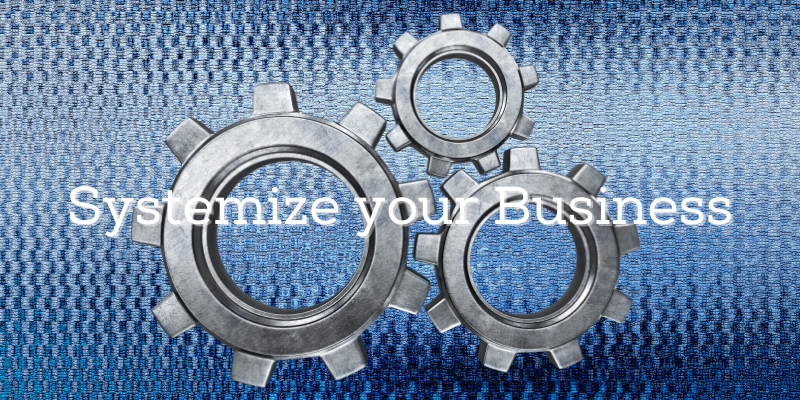How Systemized is Your Business?
 The single most important factor in creating freedom of time is to systemize as many functions within your business as you can. Systemizing creates leverage and predictability. Leverage means getting more done with less effort and creating the ability to grow without increasing the number of people you employ. Today’s e-commerce industry is a fabulous example of leverage:
The single most important factor in creating freedom of time is to systemize as many functions within your business as you can. Systemizing creates leverage and predictability. Leverage means getting more done with less effort and creating the ability to grow without increasing the number of people you employ. Today’s e-commerce industry is a fabulous example of leverage:
Websites make online shopping very convenient—the store is right in your living room! Employees are not required in your city, they can live anywhere in the world. In addition, the store never closes. It is open 24/7. They have created a fast, easy self-serve checkout line every time you pay for your purchases.
When you look at your business, do you see any areas where it can be systemized? The adage “your systems run your business and your people run the systems” has never been truer. When looking at the average business, less than 20% of the possible business functions have been systemized. The Pareto Principle states that, for many events, roughly 80% of the effects come from 20% of the causes. Your goal should be to systemize 80% of what your business does and deal with the 20% which are exceptions. Every business has the opportunity to systemize to improve performance and customer service while lowering cost per customer transaction. Even complex professional services like a law firm or a hospital can systemize their processes. In the case of a hospital, not systemizing can result in lost lives. In the case of law firms, profit is linked to billable hours. Having a template frees up time to work on additional clients. The value to the client is still the same, but the firm use some of the savings to grow its potential client base. LegalZoom did just this by making standardized wills available at a much more affordable price. What are the key areas where you can make the most impact by systemizing them right away?


 irteom
irteom